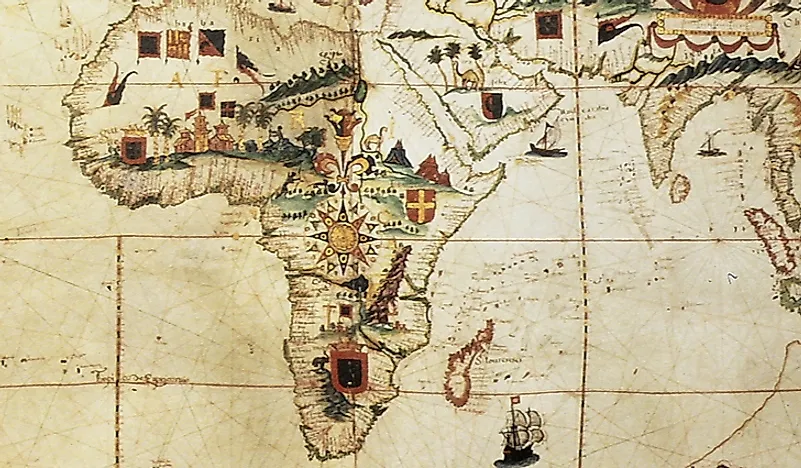Colonialism in Africa

Colonialism is the act by which a country or state exerts control and domination over another country or state. During a period lasting from 1881 to 1914 in what was known as the Scramble for Africa, several European nations took control over areas of the African continent.
European colonizers were able to attain control over much of Africa through diplomatic pressure, aggressive enticement, and military invasions. In fact, European countries competed with one another to see who could attain the most power and growth. At the height of colonization, only three sections of the continent had been untouched by European settlers:
Why Did European Countries Want to Colonize Africa?
In the years 1884 and 1885, the Berlin Conference formalized European colonization of Africa. Prior to this time, world superpowers such as Portugal, France, and Britain had already set up colonies in Africa. To a smaller extent, Germany and Italy had, too. By 1900, when the force of the quick colonization was over, the majority of the land in Africa was divided up amongst seven different European colonizing nations: Britain, France, Spain, Germany, Belgium, Italy, and Portugal. There were several different reasons why European colonizers set their sights on the African continent Some of the most prominent ones are outlined below:
Search for Riches
The 19th century was home to the industrial revolution, a time when many European nations were flourishing in the technology sector of the time. However, in order to accomplish these advancements, they needed a source of constant raw material supply. European powers noticed that many of these raw materials happened to be abundant in Africa.
Desire For Exploration
Prior to the wave of European colonization, the geography of Africa was generally misunderstood. Much like the adventurers who had traveled to Asia and North America, many European explorers set out to determine the physical makeup of the African continent.
Competition Between Colonizers
At the time of the Scramble for Africa, major world powers like Great Britain, France, and Spain were competing for power on the European stage. The amount of land that each country owned was considered to be a great indicator of power, with every state wanting to do better than their neighbor.
Religion
A large motivator behind African colonization was the desire to spread Christianity throughout the world. Much like what occurred in North and South America, European colonizers brought the Christian faith to Africa through missionaries.
Imperialism
A key ideology behind imperialism, which in turn informs colonialism, is the idea of racial superiority or cultural superiority. Again, much like the ideals behind the colonialism of the Americas, many European colonizers thought that they were doing a favor to those living on the African continent by introducing to them the European way of life, even if it came at the cost of destroying established societies.
Life In Africa Under Colonialism and Beyond
Life for the African people during colonization was difficult. Many of the ideologies behind imperialism were discriminatory in nature, using racist beliefs to justify harsh authoritarian leadership styles.
Throughout the colonial period, the societies that had been established in Africa fought hard to fend off their European colonizers. However, due to the fact that European powers were disproportionately aided by the products of the industrial revolution, many former empires and kingdoms that had been present in Africa were at a disadvantage and lost to the colonizers. Throughout this time, Africa was forever changed.
It has been argued that the poverty that is still experienced today in many African countries is a lasting effect of colonialism. The fact that many countries in Africa still experience high levels of poverty today, often despite the country’s natural riches, is used as proof by many that the colonialization of Africa did more harm than good.
British Colonies in Africa
- Anglo-Egyptian
- Basutoland
- Balleland
- Bechuanaland
- British East Africa
- British Somaliland
- British Togoland
- British Cameroons
- British Egypt
- Gambia Colony and Protectorate
- Gold Coast
- Colonial Nigeria
- Northern Rhodesia
- Nyasaland
- Sierra Leone Colony and Protectorate
- South Africa
- South-West Africa
- Southern Rhodesia
- Swaziland
- Tanganyika Territory
- Uganda Protectorate
- Sultanate of Zanzibar
Belgian Colonies in Africa
- https://lsigraph.com/Belgian Congo
- Lado Enclave
- Ruanda-Urundi
French Colonies in Africa
- Albreda
- Comoros
- French Dahomey
- French Algeria
- French Cameroons
- French Chad
- French Congo
- French Guinea
- French Upper Volta
- French Somaliland
- French Sudan
- French Togoland
- French Madagascar
- Gabon
- Ivory Coast
- Colonial Mauritania
- French Protectorate in Morocco
- Oubangui-Chari
- Senegal
- Senegambia and Niger
- French protectorate of Tunisia
German Colonies in Africa
- German East Africa
- German South-West Africa
- Kamerun
- Togoland
- Wituland
Portuguese Colonies in Africa
- Angola
- Annobon
- Cabinda
- Cape Verde
- Ceuta
- Goree
- Malindi
- Mombasa
- Algarve Ultramar
- Nigeria
- Mozambique
- Portuguese Gold Coast
- Portuguese Guinea
- Quiloa
- Sao Tome and Principe
- Tangier
- Zanzibar
- Ziguinchor











